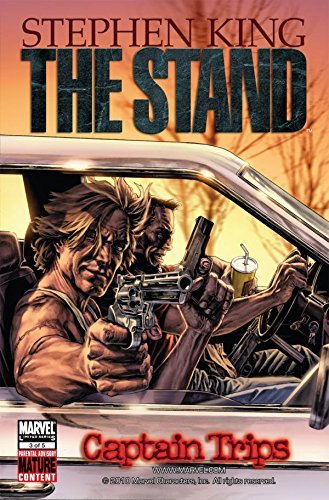
Part of Series
Authors

Roberto Aguirre-Sacasa is an American playwright, screenwriter, and comic book writer best known for his work for Marvel Comics and for the television series Glee, Big Love, Riverdale, and Chilling Adventures of Sabrina. He is Chief Creative Officer of Archie Comics. Aguirre-Sacasa grew up liking comic books, recalling in 2003, "My mom would take us out to the 7-Eleven on River Road during the summer, and we would get Slurpees and buy comics off the spinning rack. I would read them all over and over again, and draw my own pictures and stuff." He began writing for Marvel Comics, he explained, when "Marvel hired an editor to find new writers, and they hired her from a theatrical agency. So she started calling theaters and asking if they knew any playwrights who might be good for comic books. A couple of different theaters said she should look at me. So she called me, I sent her a couple of my plays and she said 'Great, would you like to pitch on a couple of comic books in the works?'" His first submissions were "not what [they were] interested in for the character[s]" but eventually he was assigned an 11-page Fantastic Four story, "The True Meaning of...," for the Marvel Holiday Special 2004. He went on to write Fantastic Four stories in Marvel Knights 4, a spinoff of that superhero team's long-running title; and stories for Nightcrawler vol. 3; The Sensational Spider-Man vol. 2; and Dead of Night featuring Man-Thing. In May 2008 Aguirre-Sacasa returned to the Fantastic Four with a miniseries tie-in to the company-wide "Secret Invasion" storyline concerning a years-long infiltration of Earth by the shape-shifting alien race, the Skrulls,and an Angel Revelations miniseries with artists Barry Kitson and Adam Polina, respectively. He adapted for comics the Stephen King novel The Stand. In 2013, he created Afterlife with Archie, depicting Archie Andrews in the midst of a zombie apocalypse; the book's success led to Aguirre-Sacasa being named Archie Comics' chief creative officer.

Stephen Edwin King was born the second son of Donald and Nellie Ruth Pillsbury King. After his father left them when Stephen was two, he and his older brother, David, were raised by his mother. Parts of his childhood were spent in Fort Wayne, Indiana, where his father's family was at the time, and in Stratford, Connecticut. When Stephen was eleven, his mother brought her children back to Durham, Maine, for good. Her parents, Guy and Nellie Pillsbury, had become incapacitated with old age, and Ruth King was persuaded by her sisters to take over the physical care of them. Other family members provided a small house in Durham and financial support. After Stephen's grandparents passed away, Mrs. King found work in the kitchens of Pineland, a nearby residential facility for the mentally challenged. Stephen attended the grammar school in Durham and Lisbon Falls High School, graduating in 1966. From his sophomore year at the University of Maine at Orono, he wrote a weekly column for the school newspaper, THE MAINE CAMPUS. He was also active in student politics, serving as a member of the Student Senate. He came to support the anti-war movement on the Orono campus, arriving at his stance from a conservative view that the war in Vietnam was unconstitutional. He graduated in 1970, with a B.A. in English and qualified to teach on the high school level. A draft board examination immediately post-graduation found him 4-F on grounds of high blood pressure, limited vision, flat feet, and punctured eardrums. He met Tabitha Spruce in the stacks of the Fogler Library at the University, where they both worked as students; they married in January of 1971. As Stephen was unable to find placement as a teacher immediately, the Kings lived on his earnings as a laborer at an industrial laundry, and her student loan and savings, with an occasional boost from a short story sale to men's magazines. Stephen made his first professional short story sale ("The Glass Floor") to Startling Mystery Stories in 1967. Throughout the early years of his marriage, he continued to sell stories to men's magazines. Many were gathered into the Night Shift collection or appeared in other anthologies. In the fall of 1971, Stephen began teaching English at Hampden Academy, the public high school in Hampden, Maine. Writing in the evenings and on the weekends, he continued to produce short stories and to work on novels.

